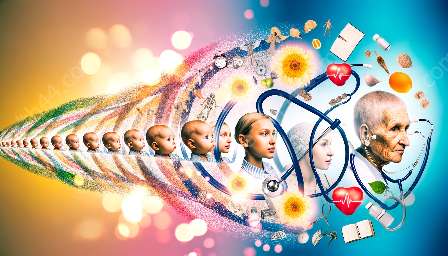Personality development is an intriguing and complex process that shapes an individual's thoughts, behaviors, and emotions. It plays a significant role in lifespan development and has profound implications for health education and medical training. Understanding the various aspects of personality development and how it evolves throughout different stages of life is crucial for fostering personal growth and well-being.
The Dynamics of Personality Development
Personality development encompasses a wide range of factors, including genetics, environment, and individual experiences. It involves the development of traits, values, attitudes, and behavioral patterns that define an individual's unique identity. From infancy to old age, personality undergoes continuous evolution and influences various aspects of an individual's life.
Linking Personality and Lifespan Development
Personality development is intricately interconnected with lifespan development. As individuals progress through different life stages, their personality traits continue to evolve, influenced by experiences, social interactions, and environmental factors. For example, during childhood and adolescence, the development of self-concept, social skills, and emotional regulation significantly impacts personality formation.
Furthermore, in adulthood and old age, personality traits such as resilience, adaptability, and coping mechanisms become particularly relevant in the face of life challenges, health issues, and overall well-being.
Impact on Health Education and Medical Training
Understanding personality development is crucial in the context of health education and medical training. It provides insights into how individuals perceive and respond to health-related information, adhere to treatment regimens, and manage their overall well-being. Awareness of personality traits, such as conscientiousness, openness to experience, and neuroticism, can inform healthcare professionals about patient behaviors, preferences, and potential barriers to healthy living.
Moreover, in medical training, recognizing the influence of personality on medical professionals' decision-making, communication styles, and stress management is essential for fostering effective patient care and professional well-being.
Nurturing Personal Growth and Well-being
Embracing the journey of personality development involves nurturing personal growth and well-being. It requires self-awareness, emotional intelligence, and continuous self-reflection. Individuals can benefit from various strategies, such as mindfulness practices, positive psychology interventions, and social support networks, to foster healthy and adaptive personality development.
Furthermore, integrating the principles of personality development into health education and medical training can enhance patient-centered care, empathy, and understanding of the diverse needs and preferences of individuals seeking healthcare services.
Conclusion
Personality development is a captivating area of study that profoundly influences lifespan development, health education, and medical training. Recognizing the intricate interplay between personality and various life domains is essential for promoting holistic well-being and fostering a deeper understanding of individual differences. By exploring the dynamics of personality development and its implications, we can contribute to creating supportive environments that nurture the diverse aspects of human personality.


